Do you want to import shoes from China? If so, you’re operating in one of the world’s biggest and most diverse footwear markets.
China, in general, remains one of the best destinations to get affordable superior quality shoes whether you are a new firm or an established one.
However, do the steps that need to be taken to import shoes from China escape you? Do you know what difficulties may arise and how to avoid them?
That article is covered, so let us continue this thorough guide on where and how you can source your product, as well as delivery.
How to Import Shoes From China – Take a Glance
| Step | Details |
|---|---|
| 1. Define Product Specifications | Identify shoe features that align with your target market’s needs. |
| Key Details to Specify | – Type: Men’s, children’s, or sports shoes. – Sizes: Specific size range (e.g., 40–44). – Colors: Preferred options (e.g., black, white). – Materials: Outer material (e.g., leather, plastic), insole thickness (e.g., 4–5 cm), and inner lining material (e.g., cotton, leather). |
| 2. Request Samples | Submit the product specification sheet to potential suppliers and request samples for testing to ensure they meet the required quality and specifications. |
| 3. Evaluate Supplier Conditions | Compare supplier quotations and select the most suitable one based on: – Shipping Terms (Incoterms): Responsibility and costs. – Payment Terms: Deposit, full payment schedule, and transfer method. – Quality Inspection: Specify inspection responsibilities and costs. – Packaging: Ensure compliance with requested standards. – Pricing and Minimum Order Quantities: Consider costs based on purchase volume. |
| 4. Inspect Product Quality | Ensure compliance with required quality standards through: – Quality Checklist: Based on your specification sheet. – Material Standards Tests: Check raw material quality (e.g., leather or plastic). – Sample Testing: Examine samples thoroughly upon arrival. – Inspection Services: Consider hiring inspection companies in China for manufacturing oversight. |
| 5. Arrange Payment | Define a secure and clear payment structure: – Recommended: 30% deposit, 20% during production, and 50% upon delivery. – Use trusted methods like Alibaba, PayPal, or third-party commercial service companies. |
| 6. Shipping Shoes from China | Select a shipping method based on your requirements: – Sea Freight: Cost-effective for large shipments; uses shipping containers. – Air Freight: Faster but more expensive; suitable for urgent deliveries or smaller quantities. – Use LCL (Less Container Load) for small shipments. – Reduce shipping costs by minimizing packaging when possible. |
| Shipping Responsibility | – Supplier Shipping: The supplier handles shipping. – Freight Forwarder: Manages customs clearance and safe delivery. |
| Marine Insurance | Ensure goods against damage during transit through freight forwarders or supplier agreements. |
| 7. Customs Clearance | Ensure compliance with all customs regulations to avoid issues. |
| Required Documents | – Commercial invoice – Packing list – Bill of lading – Quality certificates – Certificate of origin – Customs declaration – Business registration – Tax card – Certificate of conformity. |
| Customs Costs |
– China Customs Duties: Typically 17% of total shoe costs. – 21.78% of the invoice price if the cost exceeds 10 Yuan. |
Restrictions on Branded Shoes: Importing branded shoes (e.g., Nike, Adidas, Puma) may not be permitted due to trademark restrictions and licensing regulations.
What Types of Shoes Can Be Imported from China?
Regarding shoes, there is something you might want to order from China and it will be anything you can imagine, literally.
There appear to be products for every market niche since Chinese manufacturers provide so many styles and designs for every usage.
Here are some popular types of shoes you can source from China:
- Sports Shoes
China’s factories have always been at the forefront of manufacturing athletic shoes that promote comfort, sustainability, and style. Popular options include:
- Running Shoes: Lightweight and designed to function at top speed.
- Cross-Trainers: Perfect for a number of games and exercises in fitness.
- Specialized Footwear: For example tennis shoes, football boots, or basketball sneakers.
- Casual and Everyday Shoes
Chinese manufacturers provide an enlarged offer of casual footwear starting from sneakers, through loafers and sandals, to slip-ons.
- Fashion Shoes
Breathtaking styles that will mesmerize you give you Chinese fashion footwear at your fingertips. Choose from:
- Trendy Heels: Perfect for formal occasions.
- Stylish Flats: Merging the ideas of comfort with those of sophistication.
- Chic Boots: Specifically to be worn in the winter season or when going out.
Chinese manufacturers follow the fashion weeks of the world to provide apparel that can suit the sensibilities of fashionable customers.
- Eco-Friendly Footwear
With the rising demand for sustainable products, Chinese factories now produce:
- Using Recycled materials in the production of shoes such as PET bottles.
- Recyclable vegan leather for constructing the upper part of the shoes and biodegradable soles.
To determine that the suppliers are environmentally friendly you could check for accreditations such as the Global Recycled Standard (GRS).
- Seasonal Footwear
Prepare for all seasons with footwear tailored to different weather conditions:
- Winter Boots: Waterproof and insulated clothing mainly for regions where the climate is considerably cold.
- Summer Sandals: Plain weave, and lighter in weight for warmer months.
- Specialty Shoes
Catering to niche markets, China excels in manufacturing:
- Orthopedic Shoes: Made to be comfortable and for use in medical facilities.
- Safety Boots: Available with steel tips for the protection of toes or slip-resistant bottoms for the workplace.
Most of the suppliers meet the international safety standard such as the ASTM or the EN ISO 20345.
- Children’s Shoes
China is a global leader in producing high-quality children’s footwear that prioritizes:
- Safety: Safe for use, eco-friendly, and easy for children to handle.
- Durability: Built to withstand active use.
- Style: Some links and themes were bright in color and much more suitable for children.
If you are interested in learning more, read our article on how to import children’s products from China.
- Custom-Designed Footwear
Do you have a design or brand concept all of its own? Chinese manufacturers offer OEM (Original Equipment Manufacturer) and ODM (Original Design Manufacturer) services for:
- Custom logos and designs.
- More personalized packaging and labelling devices.
- Apparel sizes and functions for special consumers.
How to Find Shoe Suppliers in China?
The process of importing shoes requires searching for loyal and good shoe suppliers in the Chinese market. Here’s a step-by-step guide to help you identify trustworthy manufacturers and streamline the process:
- Research Online Platforms
Online marketplaces are the easiest avenues through which one can begin the search for Chinese Shoe Suppliers. Popular platforms include:
- Alibaba: A very popular site it is in fact one of the largest directories where you can source manufacturers with options for verified suppliers and customer feedback.
- Global Sources: Works mostly with wholesale and bulk orders with great attention paid to the certified exporters.
- Made-in-China: A site focused on suppliers who are manufacturers and exporters.
Tip: When searching always use filters such as “Gold Supplier” or “Verified Supplier”.
- Attend Trade Shows
Compared to buying from a local factory, trade shows allow you to meet with manufacturers value their products accurately, and bargain for better prices. Key trade shows include:
- Canton Fair (Guangzhou): One of the biggest trade fairs in China that is specialized in footwear.
Date: May 30 – June 1, 2024
Venue: Guangzhou, Poly World Trade Center Expo
- China International Footwear Expo (Shanghai): Has a special emphasis on trendy and quality shoes.
- China Leather Fair 2024 (Wenzhou):
Date: August 23 – 25, 2024
Venue: Wenzhou International Convention and Exhibition Center
Website: https://www.chinaleatherfair.com/
Tip: Online conferences are also held remotely and online to view suppliers for virtual trade shows.
- Work with a Sourcing Agent like OwlSourcing
Using the sourcing agent can be easy, especially for somebody who has no idea of the Chinese business culture.
Those tasks include supplier selection, factory tour, and negotiation.
OwlSourcing is a China sourcing agent. We can provide you with one-stop solutions from supply chain optimization to shipping.
Increase your company productivity with OwlSourcing as its trustable partner.
Whether you need to expand into new markets or refine your present approach, OwlSourcing is the sourcing agent and global supply chain provider that brings unparalleled expertise and results.
Contact Us Today!
Best Chinese Market for Wholesale Shoes
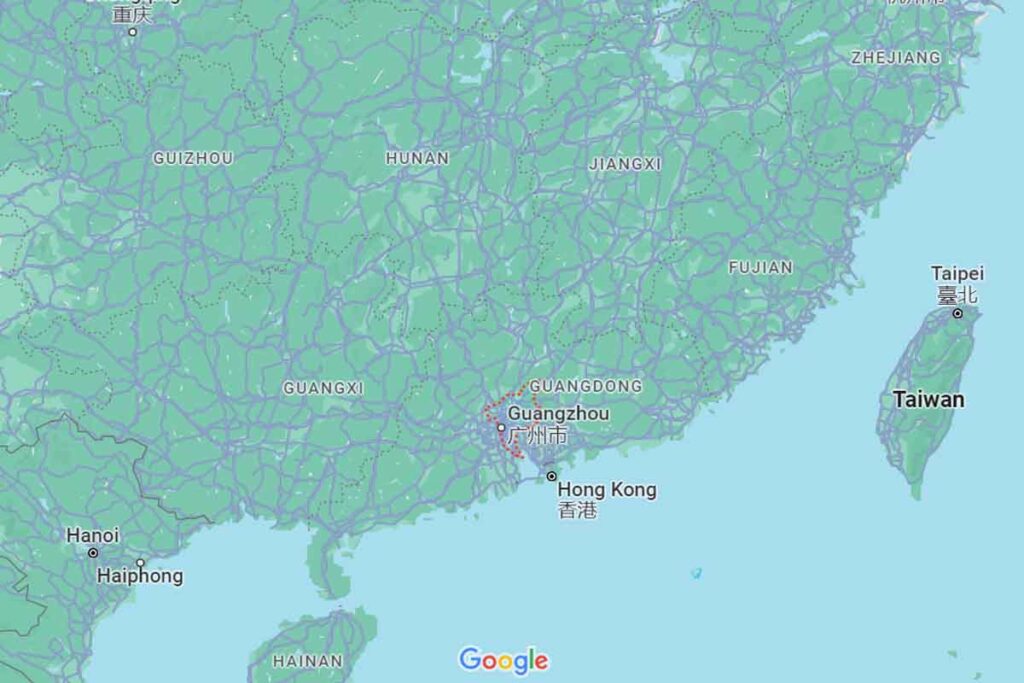
Currently, China has several well-known shoe wholesale markets, all of which provide a good variety for business purposes. Here are some of the top markets:
|
Market Name |
Detailed Location |
Main Product Categories |
Key Characteristics |
|
Guangzhou Zhanxi Shoe Wholesale Market |
No. 51 Zhanxi Road, Yuexiu District, Guangzhou, Guangdong Province |
Men’s, women’s, and children’s shoes |
Large selection, multiple specialized markets, lead fashion trends, high foot traffic. |
|
Guangzhou Metropolis Shoes City |
No. 68 Jiefang South Road, Yuexiu District, Guangzhou, Guangdong Province |
High-quality footwear, fashion shoes |
Modern facilities, and an organized layout, attract domestic and international buyers. |
|
Wenzhou China Shoe Capital Leather City |
88 West Ouhai Avenue, Lucheng District, Wenzhou, Zhejiang Province |
Leather shoes |
The comprehensive range of leather footwear caters to various styles and price points. |
|
Chengdu Dazheng Shoes Market |
No. 2 Shuangqiao Road, Jinniu District, Chengdu, Sichuan Province |
Medium to high-end footwear |
It has a systemic layout, an intelligent shopping experience, and a wide selection. |
|
Shenyang Wu’ai Small Commodity Wholesale Market |
No. 27 Wu’ai Street, Shenhe District, Shenyang, Liaoning Province |
Affordable footwear, general shoes |
Affordable pricing, diverse product range, ideal for small to medium-sized businesses. |
local wholesale market
- Wenzhou Shoe Market (Wenzhou, Zhejiang):
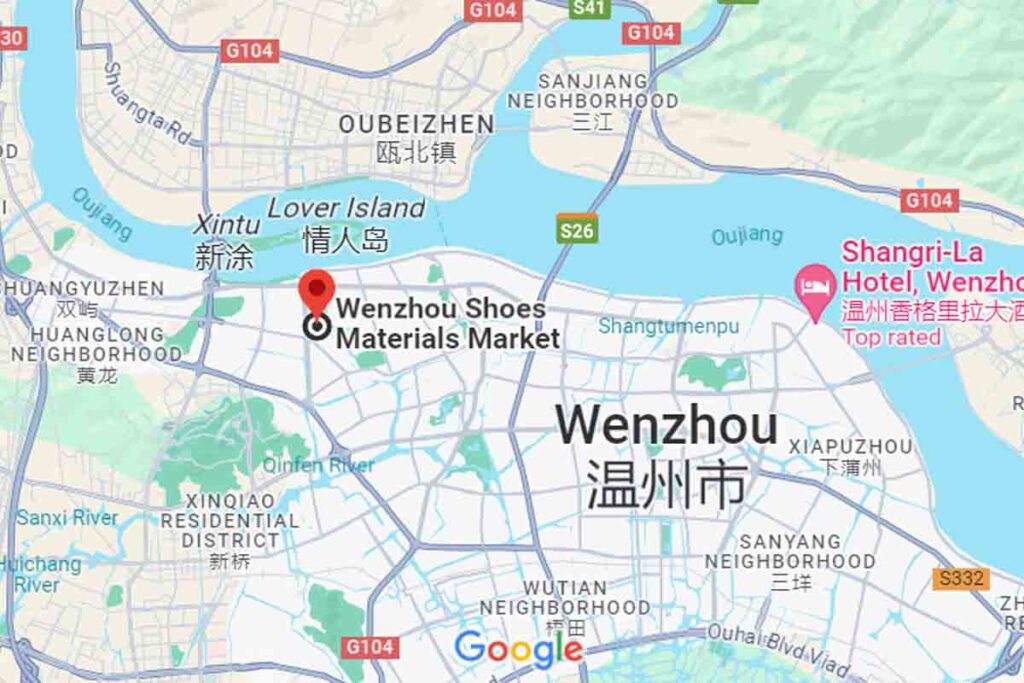
Wenzhou is known as the “shoe capital” of China.
There are many markets and factories dedicated to footwear manufacturing and wholesale.
- Yiwu Wholesale Market (Yiwu, Zhejiang):
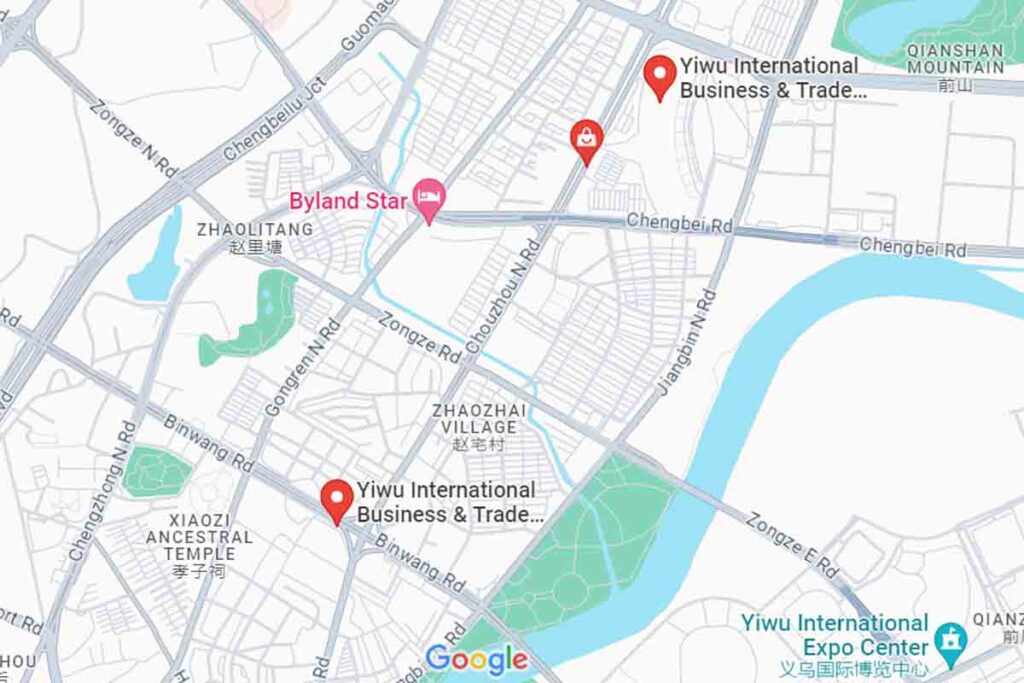
Yiwu Market is one of the largest small commodities markets in the world, and it has a dedicated section for footwear.
You can find a vast variety of shoes and footwear accessories at competitive prices.
- Jinjiang Footwear Market (Jinjiang, Fujian):
Jinjiang is another hub for shoe manufacturing in China.
The city has a large footwear market where you can find a variety of shoe suppliers.
- Guangzhou Wholesale Market (Guangzhou, Guangdong):
Guangzhou is known for its leather and footwear market.

The Guangzhou Baima clothing wholesale Market, Huimei International Clothing Market, and Zhan Xi Clothing Wholesale Market are some of the places where you can find shoe suppliers.
- Shanghai Wholesale Markets (Shanghai):
In Shanghai, the Qipu Road Clothing Wholesale Market and Zhan Lan Road Clothing Wholesale Market are popular places to find footwear suppliers.
How Much Tax Will I Pay If I Import Shoes?
- Import Duty (Customs Duty): It is a taxation policy that is charged on products imported into the United States and it possesses some variation depending on the leading HTS code.
Every type of footwear has its own shoes HTS code that determines the duty rate of the shoes. For example, men’s golf shoes come under the HTS code 6402.19.05.30 and attract a duty rate of 6%.
- Merchandise Processing Fee (MPF): The MPF is collected by the Customs and Border Protection (CBP) in the United States, for the majority of imported products.
For Formal Entries (goods valued over $2,500): It is equal to 0.3464 percent recoverable from the declared value of the goods which must not exceed $528.33 per entry, though the minimum is $27.23.
For Informal Entries (goods valued under $2,500): The fee is between $2.00 and $9.00 for each shipment.
- Harbor Maintenance Fee (HMF): The application of the HMF is where the shipment is by ocean freight.
Rate: 0.125% of the cargo’s value. This fee does not apply to air freight shipments.
Calculating Total Import Costs:
Import Duty = (Goods Valued) × (Duty Rate)
MPF:
- Goods valued over $2,500: (Goods Valued) × 0.3464%
- Goods valued under $2,500: From $2.00 to $9.00
- HMF: (Goods Valued) × 0.125% = $35
Total Import Costs = (Import Duty) + (MPF) + (HMF)
Note: If your goods are subject to extra tariffs, calculate these based on the customs value and add them to the total.
For Example:
For instance, imagine you are importing men’s golf shoes worth $28,000 consigned under HTS code 6402.19.05.30 and included in the shipment were levied a 6% duty.
Import Duty: $28,000 × 6% = $1,680
MPF: The minimum fee is $75 so the fee will be $ 28, 000 × 0, 3464% = $ 96.99
HMF: $28,000 × 0.125% = $35
Total Import Costs: $1,680 (duty) + $96.99 (MPF) + $35 (HMF) = $1811.99
Please note that these calculations are estimates. Actual fees may vary based on specific circumstances.
What Should I Pay Attention to When Importing Shoes?
Buying shoes from China is a good business opportunity but it needs a strategy for it to turn out successfully. Here are the key aspects to focus on:
- Product Quality
Quality control in China should not be overlooked. Even as organizations assume the right prices will lead to customer attraction, the quality of the product is key to reception.
This means that if you are selling substandard products to your consumers, you will be overwhelmed with complaints and generally negative feedback from the market you serve.
- Inspect Samples from China: Contact companies to ask for small samples to assess the various fabric materials as well as the style and sturdiness of the products.
- Compliance with Standards: Ensure that the shoes are safe for use for the children and are environmentally friendly by checking the safety of the children’s shoes based on the laws of the country where the shoes will be used (CPSIA compliance for children’s footwear in the USA)
Also Read: Importing Children’s Products from China
- Supplier Reliability
It means that choosing a competent supplier can prevent such risks as delays and receiving low-quality products.
- Background Checks: Check the authenticity of the supplier through sources like Alibaba, or Google Search.
- Factory Visits: Use on-site audits or employ the services of a China sourcing agent to verify the manufacturing capacity.
- Communication: How receptive they are and how eager they are to resolve problems. A reliable supplier is going to be clear and timely.
- Documentation Required for Importation of Shoes
Key documents include:
- Commercial Invoice: Gives details about the consignment and its value.
- Packing List: Registers all the goods supplied in name with their quantities.
- Certificate of Origin: They ensure that it provides information about the country of origin of the goods.
- Compliance Certificates: In concerns with safety and environmental requirements, especially with regards to children’s shoes.
- Import License: If required by your country.
Shoes and Footwear Regulations in the European Union
- Shipping
Organized shipping means that your goods arrive when expected and in the right condition.
- Packaging: Always post shoes in packages so that they are not damaged during delivery. To reduce cost, it is recommended to use lightweight but strong materials when constructing the base.
- Incoterms: Learn abbreviations like FOB (Free on Board) or CIF (Cost, Insurance, and Freight) in order to know the shipping obligations.
You can check another article about Basic Trade Terms
- Payment Security
This is important because the right payment methods ensure that you are not a victim of a scam.
- Escrow Services: For the payments Alibaba has a Trade Assurance service, on similar lines, ensure that you have a similar service to protect yourself.
- Letter of Credit: It makes sure that the agreed conditions are met before the supplier is paid his or her dues.
- Partial Payments: Get a 30% down payment and 70% on delivery or production of the product or shipment of the product. Most payment methods are in this way.
Of course, you can read this article about What is the Best Way to Pay Chinese Suppliers.
Note: Do I need an import license to buy goods from China?
No.
In most cases, the USA does not demand particular import licenses for shoes. But, some shoes can be regulated or require certification, for example, if they were made from the skin of protected species, or have certain protective properties.
In the case of footwear made from animal products, consult with the U.S. Fish and Wildlife Service, depending on the kind of products used.
Why Import Shoes from China?
While there is ample evidential data to support the continued advantage in importing shoes from China in 2024 among other reasons.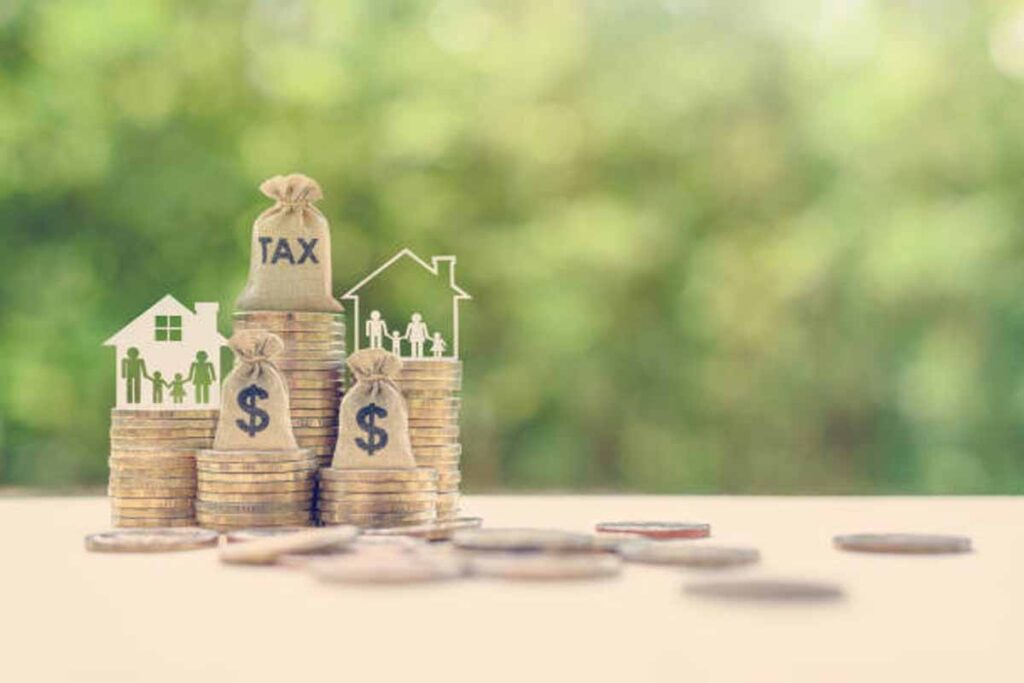
- Cost Efficiency
China continues to retain its status as the manufacturer of cheap quality goods which is a common feature in the marketplace.
Players dealing with shoes imported directly from China enjoy the fact that most of them are cheap to produce compared to industries in other areas.
For instance, while the cost of manufacturing a pair of sneakers in China is relatively cheaper than the one produced in other countries, it can be as low as 30-40%.
This means that there is an increased ability to earn greater profit margins for companies while at the same time avoiding compromise of quality.
- Wide Variety of Styles
It would be easy to find more diversified kinds of footwear produced in China. The Chinese manufacturers supply needs of various types.
Currently, there are over 20,000 shoe factories in China, hence it is not difficult for any business to source for suppliers that share similar brand requirements with their target customers.
- High Production Capacity
Chinese manufacturers are properly armed with advanced technology and a skilled workforce to assemble a large number of these products instantly.
For example:
Guangzhou and Wenzhou factories have been found to have the capacity to produce up to 50000 pairs of shoes in a month, without compromising quality.
This acts as a safety net that guarantees a reliable chain of delivery, especially when sales are at their peak.
- Logistical Advantages
China’s strong supply chain makes importing goods easy and secure; thus, shoes can also be imported easily into the country.

According to Statista, we can see that most of the men’s footwear market in the United States is leaning toward China.
How to Import Replica Shoes from China?
If you are considering importing replica shoes from China, then this is a comprehensive guide compiled with the experience gained in the footwear business for over twenty years:
1. Work with a Trading Agent
Working with a trading agent is highly advisable in small MOQs-for instance, tens of pairs of about 200 pairs per color. Agents can:
- Coordinate with multiple shoe factories to streamline production and ensure quality control.
- Consolidate shipments to lower transportation costs.
- Manage recurring orders, including material procurement, production timelines, and price negotiations, making them an ideal choice for regular weekly or monthly imports.
2. Work Directly with Factories
If reducing costs is a priority, bypass trading agents and connect directly with factories. However, consider the following:
- Specialization: Many factories specialize in the production of certain types of shoes, like high heels, casual wear, or sportive shoes.
- Size of the order: For smaller-size orders, it is advisable to use hand-lasting factories because they are more flexible at low volumes than a fully automated production line. Direct dealing requires more hustle but provides higher margins.
3. Source from Yiwu International Trade City
Yiwu is the international small commodity hub, housing an enormous variety of replica shoes. The major advantages are:
- Competitive pricing due to the fierce competition amongst sellers.
- Diverse design: from fashion casual shoes to highly demanded sports copies.
Tips: In any case, do not forget to consider merchant reputation and after-sales service in concert with price and design for the reliability and quality of the product.
4. Attentiveness to Main regions-manufacturers
- Guangdong (Dongguan & Guangzhou): offers huge production possibilities with a wide range of footwear types.
- Fujian: specialized in sport and casual footwear; has a capacity for high volume production.
These are the hotspots for those manufacturers that afford and are capable of handling such diversified sourcing requirements.
5. Check out Online Platforms
More supplementary sourcing options can be sought on platforms like Taobao, 1688.com, or even Instagram.
- On Instagram, for instance, use search terms like “replica shoes” to find niche sellers.
- Always check the online reviews, ratings, and communication before placing an order.
Importing replica shoes from China can be very lucrative if done correctly. Be it through a trading agent, working directly with factories, sourcing from Yiwu International Trade City, or making use of the Internet, be sure to keep these key factors in mind:
- Product quality.
- Supplier reputation.
- Cost-effectiveness.
With proper planning and due diligence, you can successfully establish a reliable supply chain and scale your business.
Some Common Questions When Importing Shoes from China
1. What is the minimum order quantity (MOQ) for importing shoes from China?
MOQs vary depending on the manufacturer but typically range from 500 to 1,000 pairs per style. Some suppliers may negotiate lower MOQs for smaller businesses or during off-peak seasons.
2. How long does it take to import shoes from China?
The timeline depends on factors like production time and shipping method:
Production: 30–60 days on average.
Air freight: 7–14 days.
Sea freight: 30–45 days.
3. Are Chinese shoe manufacturers open to small orders?
Many manufacturers prefer large orders due to cost efficiency, but smaller factories or trading companies may accept small orders.
4. What materials are commonly used in shoes made in China?
Common materials include:
- Leather: Genuine or synthetic.
- Fabric: Cotton, canvas, or mesh.
- Rubber: For soles.
- EVA or PU: Lightweight and durable materials for insoles.
5. What are the import taxes and duties for shoes?
For the U.S., duties can range from 8% to 37.5% depending on shoe type.
Check your country’s HS code for shoes to calculate the exact fees.
6. Can I import branded shoes from China legally?
Importing branded shoes without authorization is illegal due to intellectual property rights. Stick to OEM/ODM manufacturers who offer unbranded or custom-made designs.
7. How do I find trustworthy sourcing agents for importing shoes?
You can contact us. OwlSourcing is a professional sourcing team with the expertise to help you work with reliable suppliers and ensure a seamless process.
8. How can I protect my designs when importing customized shoes?
Sign a Non-Disclosure Agreement (NDA) with the manufacturer.
9. Are there eco-friendly shoe manufacturers in China?
Yes, some manufacturers specialize in sustainable footwear. Search for suppliers advertising recycled materials or compliance with environmental standards.
Read More:
- How to Import Battery from China
- Sourcing High-Quality Footwear from Yiwu Shoes Market
- China Sourcing Agent Fees
- How To Import Bags From China: A Detailed Guide
- How to Source Products From China
Final Thoughts
Therefore, the idea of importing shoes from China is ideal. Contrary to potential problems, when they are known beforehand and the sourcing strategy is clear, potential problems can be minimized.
With great sourcing agents like OwlSourcing, you can contact us with any questions you may have at any one time.
Good luck to your sourcing business and hoping for a perfect experience throughout!

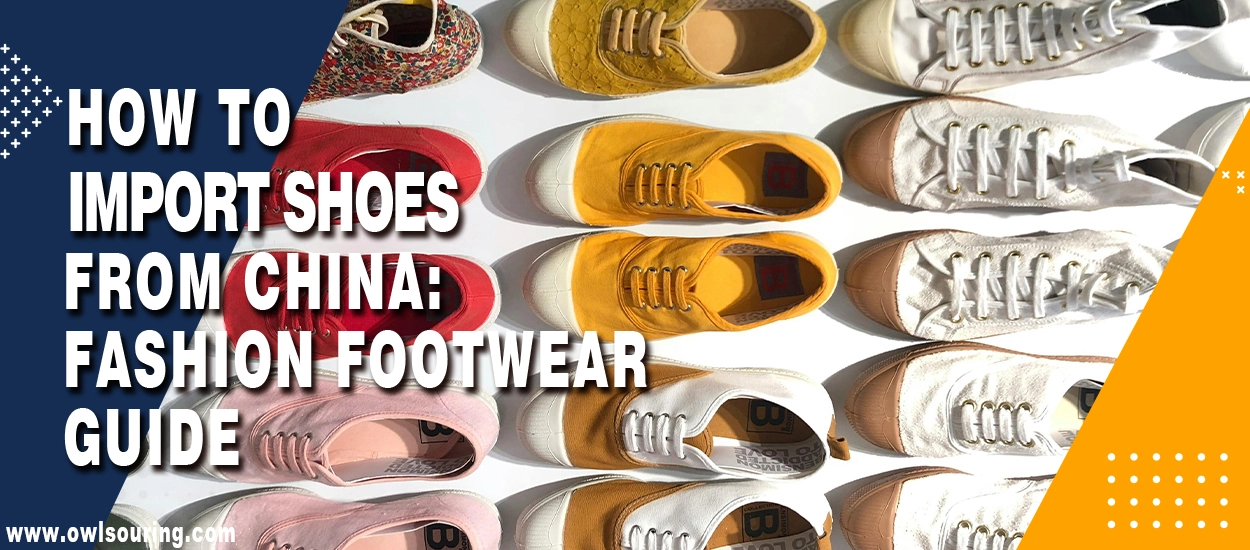

10 thoughts on “How to Import Shoes From China?”
I would like to buy quality running shoes. What are some popular running shoe brands? What features should I look for in running shoes? Are there any online stores that sell good-quality running shoes?
Thank you for your comment! Some popular running shoe brands include Nike, Adidas, Asics, Brooks, and New Balance. When choosing running shoes, look for features such as cushioning, support, breathability, and a good fit. Online stores like Zappos, Road Runner Sports, and the official brand websites often have a wide selection of high-quality running shoes. If you need further assistance or recommendations, feel free to contact us anytime!
As a seasoned German trader in China’s footwear industry, I’ve noticed trends shifting towards sustainable materials and ethical manufacturing practices. Andy, could you share any insights or strategies for sourcing eco-friendly shoe options from Chinese suppliers while maintaining competitive pricing and quality standards?
Thank you for your comment! To source eco-friendly shoe options from Chinese suppliers while maintaining competitive pricing and quality standards, consider research suppliers specializing in sustainable materials and ethical practices, verify certifications like GOTS or OEKO-TEX, negotiate to balance cost and quality, visit factories to ensure compliance and place bulk orders to reduce costs per unit.
Feel free to reach out for more detailed assistance!
I’m in the early stages of considering importing shoes from China, and I’d love to gather some insights to make informed decisions. Could you share any recommendations for reliable shoe manufacturers or suppliers in China?
Hi Imani. It’s great that you’re considering importing shoes from China!
For reliable manufacturers, start by exploring well-known B2B platforms like Alibaba or Global Sources, where you can find a range of suppliers with customer reviews and quality certifications. It’s important to verify suppliers’ credentials and consider visiting trade shows like the Canton Fair for direct interactions. Also, look for suppliers who are compliant with international standards and are transparent about their manufacturing processes. This can help ensure product quality and ethical practices. Good luck with your venture!
I’m new to importing, and your article helped a lot! Do you have a checklist or step-by-step guide for someone like me, just starting out with importing shoes from China? Thanks!
Thank you for your comment! I’m thrilled to hear the article was helpful.
As a start, a basic checklist for importing shoes from China might include: researching reputable suppliers, understanding import regulations, arranging quality control measures, setting up logistics and shipping, and planning for customs clearance.
I can certainly put together a more detailed step-by-step guide if that would be useful. Let me know if you’d like that!
I found the information on importing shoes from China really helpful. It’s good to know the steps involved, especially for someone like me who’s just starting in the business. Thanks for breaking it down in simple terms!
Thank you for your feedback, Mirage! I’m thrilled to hear that the guide on importing shoes from China was helpful to you. If you have any further questions or need more detailed insights as you start your business, feel free to ask. Best of luck with your new venture!